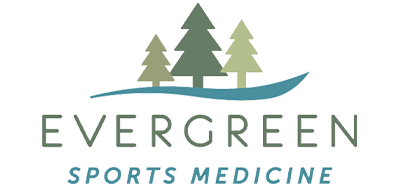Covid-19 and Exercise
Recommendations for exercise restriction during COVID-19 infection and return to exercise following recovery are constantly evolving.
At this time there is recommendation by the medical community to STOP physical activity during active COVID-19 infection – meaning the time during which you are isolating at home. Members of the community who are diagnosed with COVID-19 by lab test but do not have symptoms should stop exercise for for this period as well. These recommendations comes from multiple national medical associations and is due to concern for increased impact of the COVID-19 virus on your heart, lungs and other organs as a result of moderate to vigorous physical exertion while fighting the infection.
Student athletes with COVID-19 are recommended to talk with their primary care doctor following completion their isolation period to plan return to athletics in accordance with the Vermont Principles Association guidelines for return to play following COVID-19 infection. VPA state guidelines for return to athletics after COVID-19 infection for grade school athletes were updated in February 2022 to include a shorter return to play progression following recovery. Specific details can be discussed with your medical provider once isolation period has ended.
In the case of community members with more significant symptoms (eg. >3 days of fevers, chest pain or shortness of breath during illness), we recommend you talk with your doctor once your isolation period is complete but before you return to exercise.
HOWEVER, we continue to recommend regular exercise for members of the community who are 1) asymptomatic, 2) otherwise healthy, and 3) have no expected risk of active COVID-19 infection. The national goal of at least 150 minutes of moderate exercise per week has proven benefits to mental, cardiovascular, and immune health – all of which we need during this stressful time.
Being active in the age of COVID-19 has been a lot harder; but – by following the basic guidelines listed below – it is definitely still possible to stay active:
1) Keep up with all of the local and regional guidelines on mask-use, social distancing, and community gatherings. Exercise is a crucial part of mental and physical health, but it should be done without putting our safety or the safety of others at risk. Current Vermont Department of Health Guidelines regarding COVID-19 can be found here. National guidelines from the Centers for Disease Control and Prevention (CDC) can be found here.
2) If you have concerns that you may have contracted COVID-19 (ie. you are experiencing cold symptoms or have a known exposure to COVID-19), it is appropriate to stop anything beyond light exercise (eg. walking) until you are considered cleared of risk of having COVID by your medical provider or are confirmed to have COVID-19.
3) If you are confirmed to have contracted COVID-19, we strongly recommend that you STOP EXERCISE FOR THE DURATION OF YOUR ISOLATION PERIOD. This is meant to allow your heart and lungs to recover from the infection before putting them under regular exertion again. As mentioned above, if you are diagnosed with COVID-19 by lab test but do not have symptoms, you should stop exercise for the two weeks following the day of testing.
4) Any grade school athlete with a COVID-19 infection should make an appointment with a medical provider (such as the providers at Evergreen Sports Medicine and Family Health) for a medical examination once his or her isolation period has ended but before resuming moderate to high intensity exercise/training. Adults with known underlying lung / heart conditions or those that are a competitive athletes may also want to consider this.
We understand that this is a complicated and incredibly stressful issue. If you have any questions, please feel free to make an appointment to sit down with our team.
-Evergreen Sports Medicine and Evergreen Family Health Partners
Updated March 2022.

